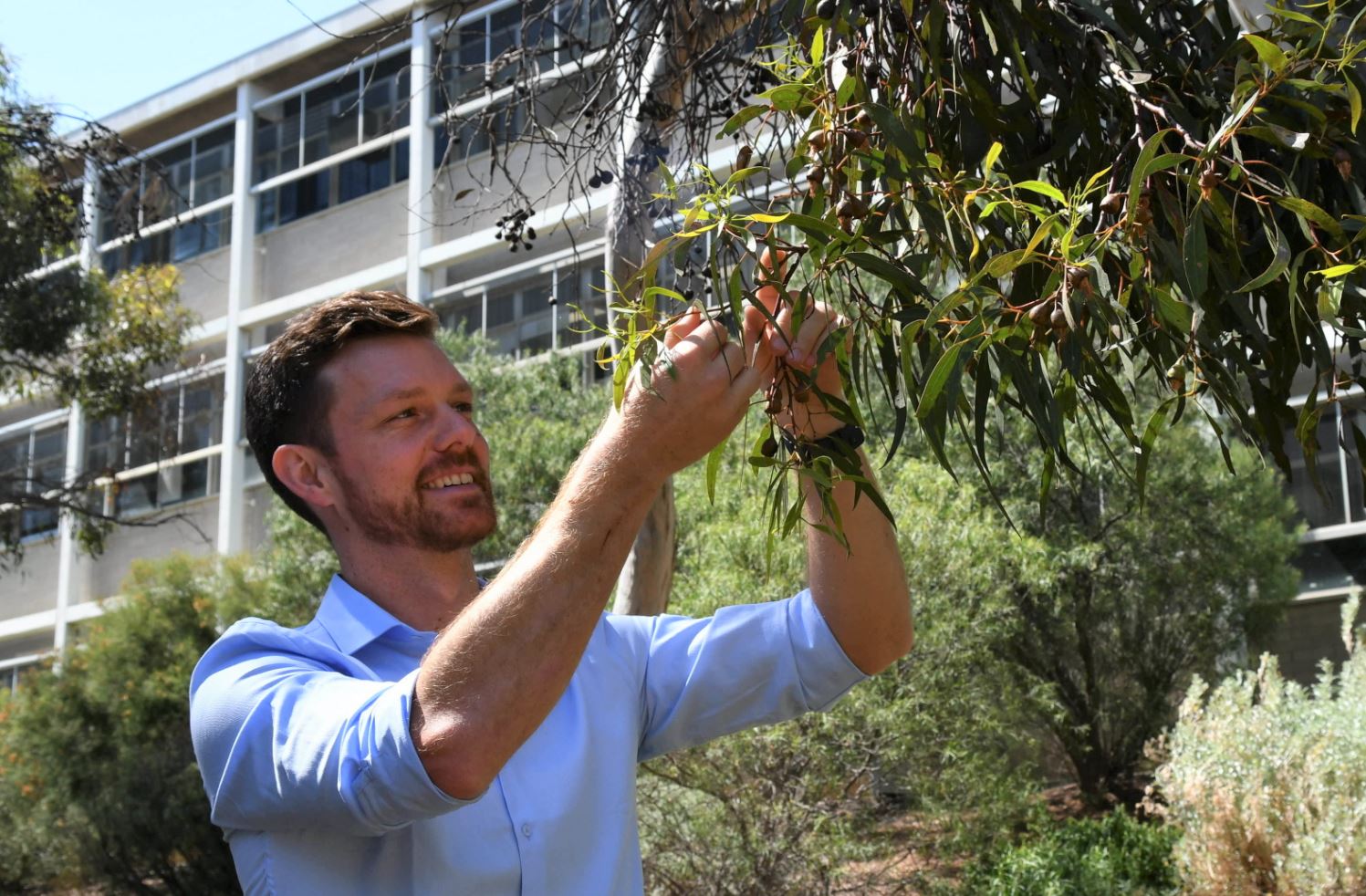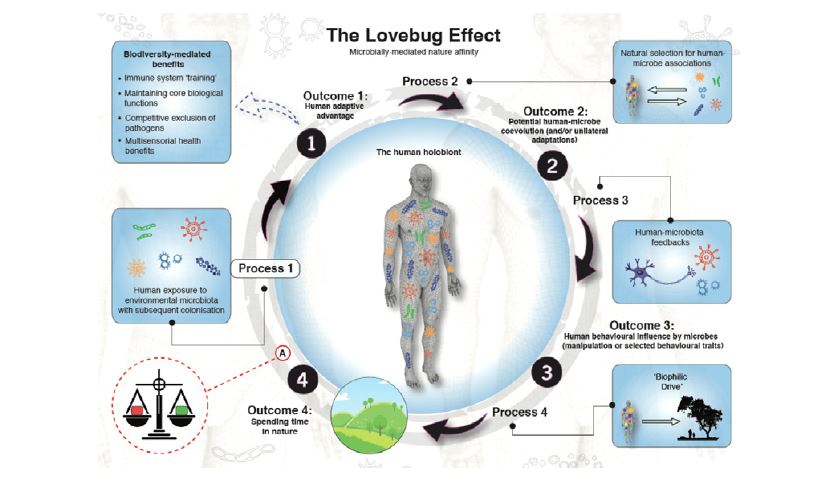
Could exposure to microbes in soils, air and plants encourage people to spend more time in the great outdoors?
It’s an important question posed by researchers as humans are losing their connection to the natural environment, spurred on by smart technology and mass migration to major cities around the world.
Ecology researchers at Flinders University and the University of Sheffield have proposed the ‘Lovebug Effect’, which suggests that microbes could theoretically influence us to spend more time in nature while simultaneously improve our immune system to help combat diseases like inflammation and allergies.
The human gut microbiome remains relatively stable after the first few years of life so the researchers wondered whether a connection with nature at an early age would increase the amount of time a child spends outside later in adult life, improving their health in the process.
Jake Robinson, a PhD researcher from the University of Sheffield, says the Lovebug Effect could have important implications on our understanding about the importance of human exposure to natural environments for health and wellbeing, and could contribute to an ecologically resilient future.

“By altering our brain chemistry, microbes may be able to manipulate our behaviour to influence the food choices we make or the environments we visit,” he says.
“Part of this process could involve our decisions to spend time in nature, that is, to be immersed in dense clouds of invisible biodiversity and phytochemicals that are potentially beneficial to our health.”
For example, microbes have been shown to produce an array of chemicals in the body that can hijack the communication system between the gut and the brain.
However, other pathways that don’t involve direct manipulation could also play a role, such as changes in inherited traits across generations, and in particular, those that maximise survival and reproduction.
Flinders University researcher Dr Martin Breed says it’s important to generate discussion about how far microbiome science can go in terms of influencing human behaviour and health.
“Humans have been losing our connection with the great outdoors and all its biodiversity including the vast array of microbes that cling to surfaces and sail through the air,” Dr Breed says.
“Our diminishing connection with the natural world is thought to contribute to a rising trend in non-communicable diseases – such as chronic inflammatory conditions and allergies.
“So the next time you’re strolling through a woodland or a park, take a moment to think about how the invisible critters within and around you may have influenced your desire to spend to time in nature.”
Dr Breed is part of the Frontiers of Restoration Ecology research group and Healthy Urban Microbiome Initiative (HUMI).
‘The Lovebug Effect: Is the human biophilic drive influenced by interactions between the host, the environment, and the microbiome?’ was published in Science of The Total Environment, Vol 720, 10 June 2020, 137626

